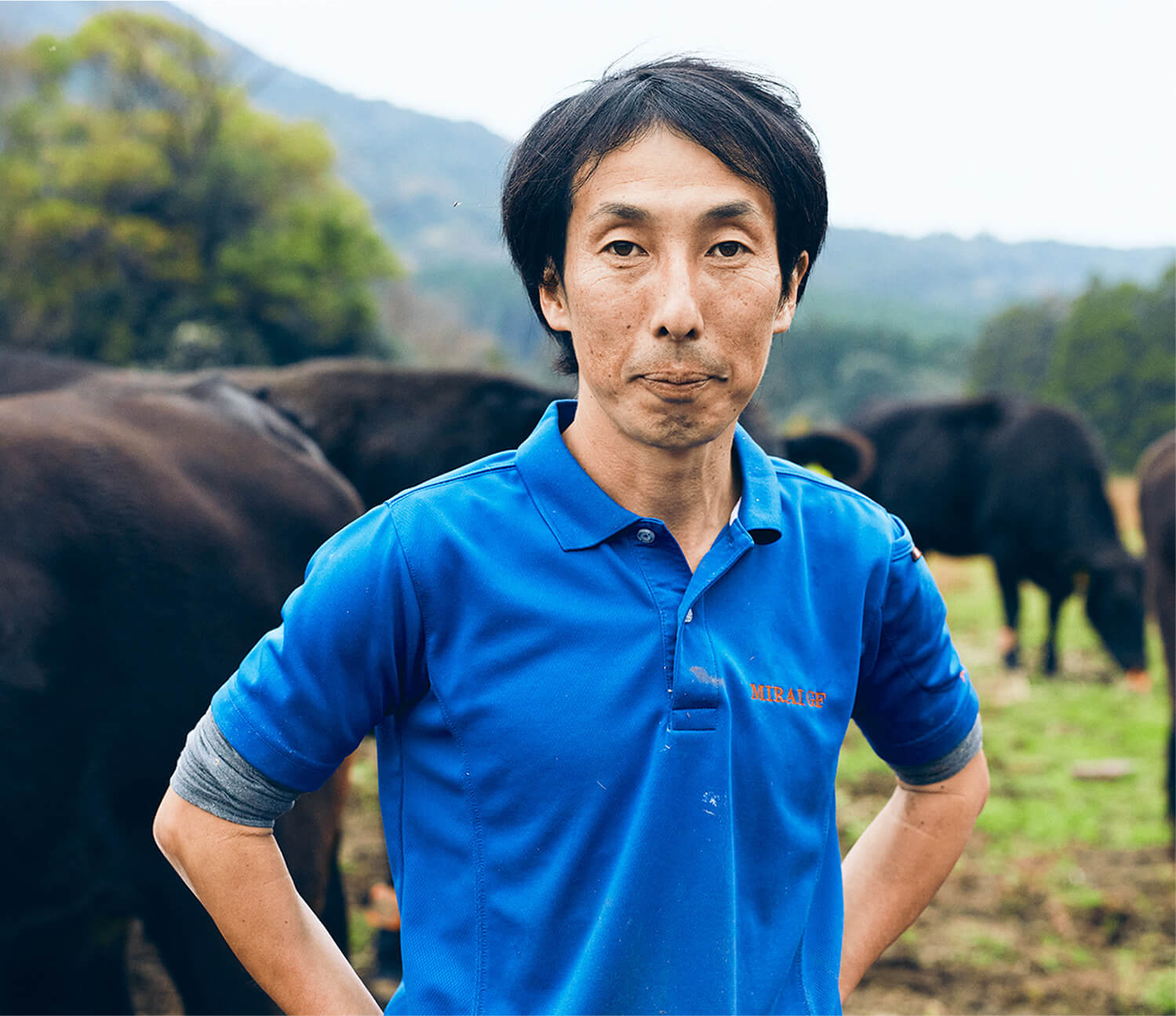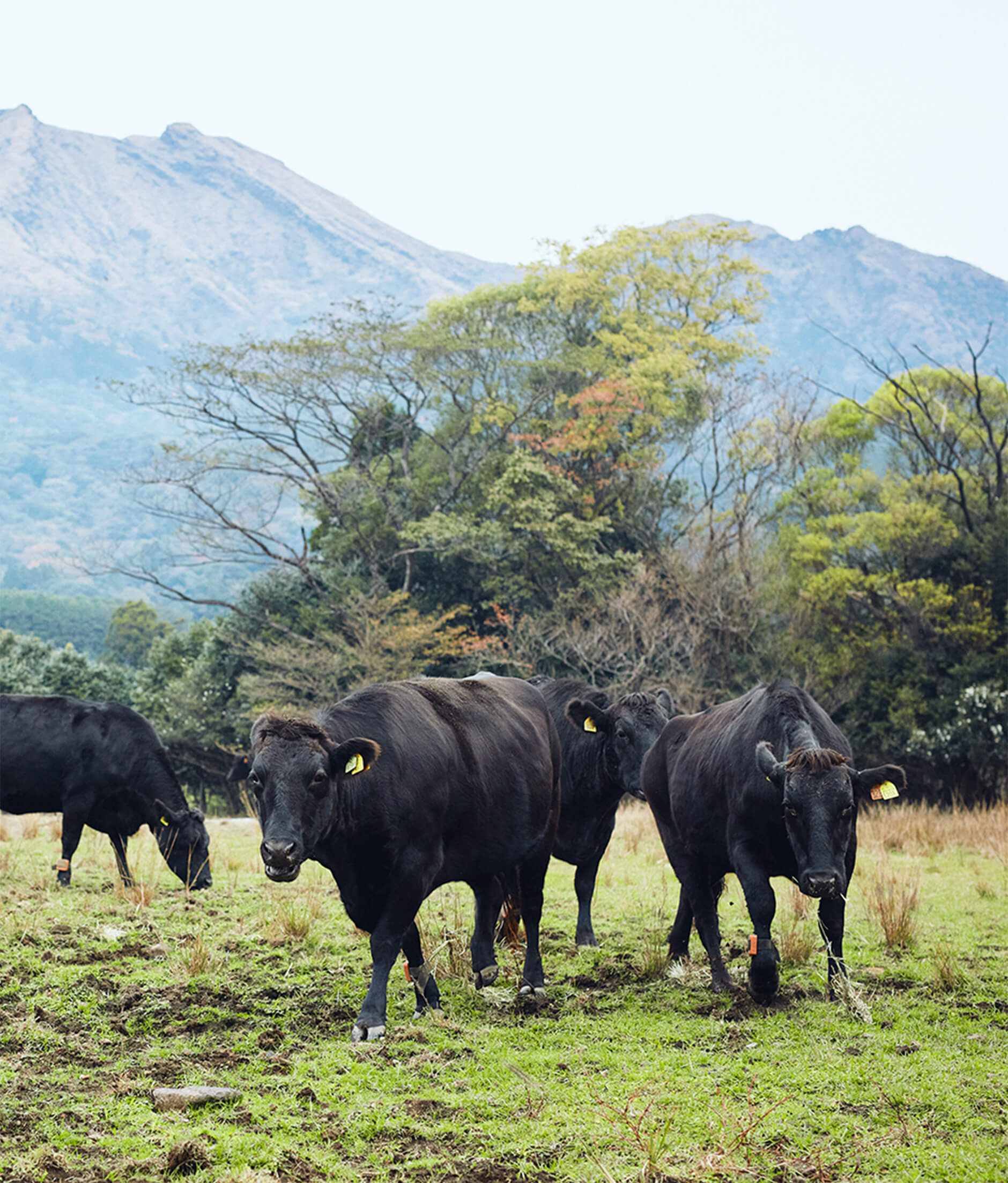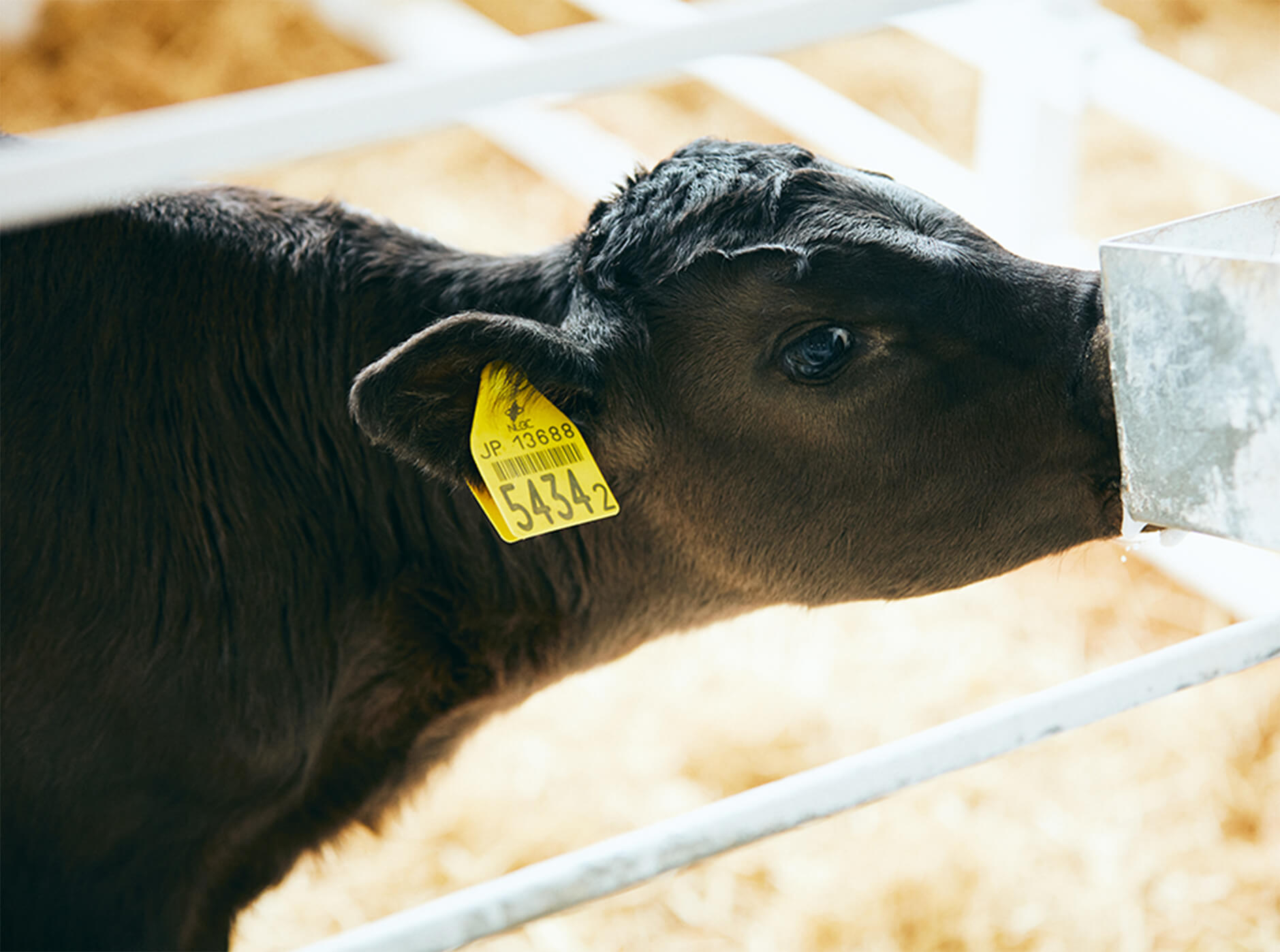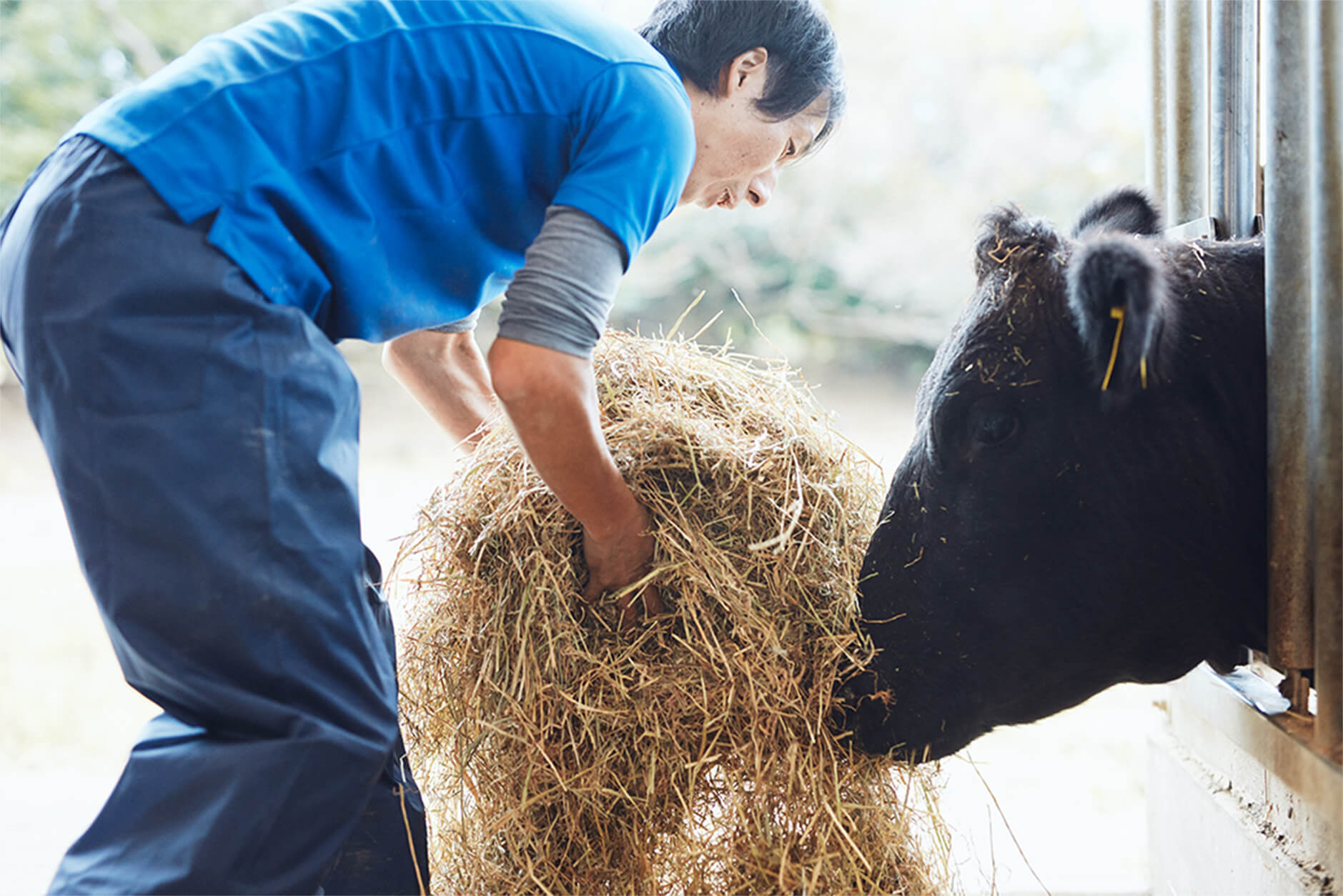
In the Words of a
Japanese Wagyu Rancher
Working with Japanese Wagyu pedigrees
Yuhei Kubo
For 20 years, Yuhei Kubo has been involved in the Japanese Wagyu breeding section of the Mirai Farming Group, which produces Japanese Wagyu mainly in Kagoshima. JFOODO visited Mr. Kubo to ask him about the painstaking work that goes into breeding Japanese Wagyu and what he takes pride in.
Japanese Wagyu from an expansive ranch in Kyushu, southern Japan

Our ranch is located in a basin that is especially hot in summer and cold in winter. However, we believe this large temperature range helps us raise strong, quality Japanese Wagyu.
Our breeding cows and calves get a proper amount of exercise on our large ranch, so they are very relaxed. Because we raise them in a nearly natural environment, breeding cows can deliver their calves smoothly, and the calves grow up well. We constantly monitor the cows we raise and pay attention to minute changes in each one of them to understand their health status.

Overcoming the harsh seasons to raise Japanese Wagyu

Japanese Wagyu cattle are very sensitive animals. They are vulnerable to the summer heat and the winter cold, so calves born in summer are raised differently from those born in winter. This is why we manage the care of each calf on an individual basis. In the summer, sprinklers spray mist to keep the barn from getting too hot, while ventilation fans help maintain the right temperature. We also lay straw that prevents respiratory diseases because it keeps dust from flying. In winter, that straw keeps the calves' bellies from getting too cold. We also install heaters in the barn and put calf vests on the cattle to protect them from the cold.

Caring about pedigree and living environment and raising Japanese Wagyu in relaxed surroundings

Japanese Wagyu has a certain degree of defined production volume and meat quality according to pedigree. The local environment and ranchers are further factors affecting the environment where the calves are raised. It's my job to make sure if a pedigree matches the ranch's environment. We are proud of the work we do to raise Japanese Wagyu. Fortunately, the younger generation has been joining the profession, and we are passing on to them our accumulated knowledge of raising Japanese Wagyu. Getting along with our colleagues is also important. I believe that creating a stress-free work environment helps the calves relax, and that makes it possible for us to produce top-quality Japanese Wagyu. That's something I firmly believe in.

